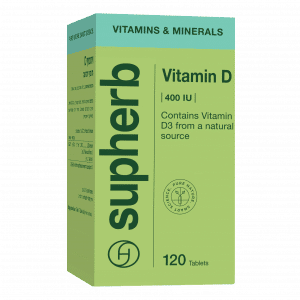- Home
- Vitamins & Minerals
- What Do We Really Know About Vitamin D?
What Do We Really Know About Vitamin D?
- Vitamin D is produced in the body; our skin cells are able to convert the cholesterol found in the skin into vitamin D by direct exposure to sun radiation.
- The tone of one’s skin affects the production of vitamin D; vitamin D deficiency is more common in people of darker complexions.
- Vitamin D deficiency is highly common in Israel despite it being a sunny country.

Vitamin D is a hot topic. On top of the stream of articles and the high media coverage, vitamin D is highly acclaimed due to its health benefits. Click here to read everything you need to know about vitamin D.
What do we really know about vitamin D? Why is this vitamin so important? And why is it mostly in deficiency all year round? The answers can be found in this article.
Vitamin D, nice to meet you
Most of us encounter vitamin D when there’s a new baby in the family. The doctor instructs us to give them two droplets of vitamin D every day, and we, as parents, don’t even ask why. If the doctor says so and the other parents do so, it’s probably the right thing to do. Besides, it’s another full proof way to sooth a baby when it cries after having its bath, and what wouldn’t we give for a few more minutes of peace and quiet?
But what do we really know about vitamin D?
The health potential embodied in vitamin D has been getting an increased recognition by scientists in different fields. Vitamin D is known to be one of the most important factors in prevention of bone structure-related diseases by helping the body absorb calcium.
We encounter it in two main cases during our lifetime:
- When there’s a newborn, a daily dose of vitamin D is given in order to ensure healthy bone development and prevention of rickets.
- As a person matures, vitamin D is used for protecting bone density, which tends to dwindle, and at the higher risk of osteoporosis. However, lately it’s been found that this is just the tip of the iceberg in terms of the health potential vitamin D carries.
Vitamin D’s health potential uncovered
Recent studies have shown that vitamin D is no longer just for infants or the elderly.
Vitamin D is considered to be one of the most crucial vitamins for the body. It has a key role in maintaining integrity and structure of the bones, teeth and muscles. It strengthens the immune system and is vital for healthy nerval functions. It also aids in sugar metabolism and is essential for the absorption of vitamins and minerals.
Do we consume enough vitamin D?
Well. For most of us, the answer is ‘no’. it’s surprising, especially since vitamin D is produced in our bodies following exposure to sunlight, which is common enough in our little country. Surprisingly, 80% of the population in Israel has been found to have vitamin D deficiency, and we’re not alone, this deficiency is also common worldwide.
Why does most of the population in Israel suffer from vitamin D deficiency?
One of the hypotheses for this paradox has to do with our modern lifestyle. Long hours of office works and too little time outside, especially in this day and age. Another cause is the use of sunscreen. The (justified) concern of sun damages make us wear longer sleeves or apply sunscreen that filters out radiation. Vitamin D is produced in the skin cells when they’re exposed to sunlight, and therefore avoiding exposure to sunlight or use of sunscreen are related to decreased production.
Who might develop a vitamin D deficiency?
Data by the Israeli Ministry of Health show that a few groups might suffer this deficiency: people who suffer from several diseases that have difficulty absorbing or producing the vitamin; breastfed infants, which is why a vitamin D supplementation is recommended during infancy; groups in the population who aren’t getting direct sunlight due to medical conditions and the elderly who tend to stay in a lot. Groups that make sure to wear longer, less revealing clothes and people who work long hours at home or in offices might also suffer this deficiency.
Ministry of Health recommends vitamin D for the public
In a statement to the public, published on October 12th, 2020, by the Ministry of Health, it stated that vitamin D is essential for strengthening the immune system and epidemiological observations have found that vitamin D deficiency is linked with having a negative effect on contagion and contracting respiratory system infections. It also stated that a normal level of vitamin D has been linked with decreased contagion and contracting of covid-19.
Therefore, the Ministry of Health recommends taking these dosages of vitamin D, daily, in this day and age:
- A daily dosage of 800-1000 IU for people of standard weight.
- A daily dosage of 2000 IU for people who are overweight
- A daily dosage of 4000 IU for people suffering from obesity.
- A daily dosage of 400 IU for infants under 12 months.
- A daily dosage of 600 IU for children one year and older.
- During quarantine, for babies and children one year and older who do not leave the house, for a limited 6-week period, 1000 IU daily (recommended by the Pediatric Association).
What kind of vitamin D is recommended?
Considering all the information, taking vitamin D as a dietary supplement will enable maintaining its levels, even when the body itself doesn’t produce sufficient amounts, and would prevent a deficit. It’s recommended to choose vitamin D in its active form, and in different and easy consumption methods, such as droplets or soft, easy to swallow gel capsules.
















